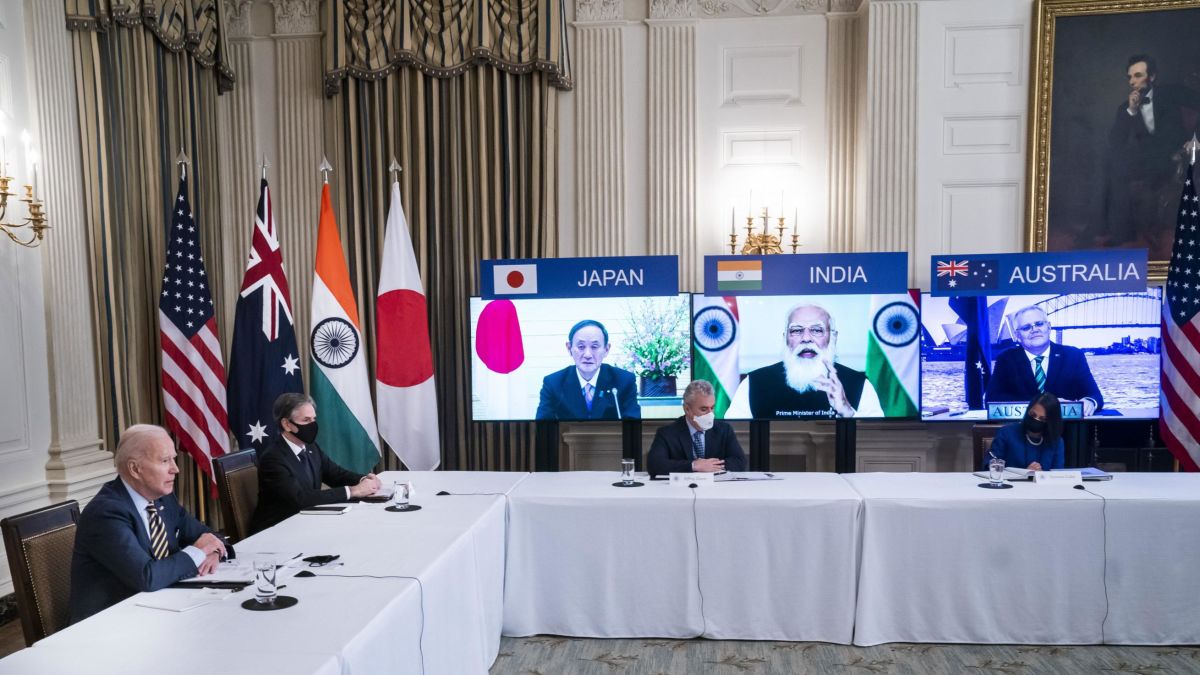
Founded after the 2004 tsunami, the forum that brings together the United States, India, Australia and Japan met recently, for the first time at a head of state level. This elevation of the political stature of the “Quad”* allowed Joe Biden to highlight three fundamental points in the return of America to the world stage.
First, the Indo-Pacific region is the central axis of his strategic alliances, be they military, commercial, logistical or public health related. The challenges presented by China’s ambition and the consolidation of Europe’s stability are nudging American foreign policy and national security considerations in that direction. It was not a coincidence that the United Kingdom, just days later, placed the Indo-Pacific region at the center of its post-Brexit strategic interests, keeping pace with the American stance and increasing the pressure on those European capitals that have been hyper-expectant about America’s renewal of ties with Europe. These events, in turn, compel Europeans to coordinate their actions so that, whenever possible, they maximize their power and influence on the great issues of globalization and, when this does not appear possible, to proceed with great caution so as to minimize potential collateral damage. In addition, they make clear the importance of the European Union-India summit and of a sustained alliance between Lisbon and New Delhi.
Secondly, the Quad’s summit indicated a recognition that the growth of authoritarianism and hybrid regimes can be confronted by something other than a military show of force. It was this idea that Biden shared at the meeting, an understanding buttressed by India’s vaccine production capacities, Australia’s logistical strengths and the importance of a communications network in the region — and beyond — that is capable of circumventing Chinese predominance in the extraction, application and commercialization of rare earth minerals and other natural resources in the technological industries that will shape consumption patterns and global economies in the years to come. Australia, for example, is a major force in this race, and deserving of sharper attention from the EU and Portuguese diplomacy, not only in the field of energy sources but also in the economic arena: Its former finance minister was recently elected secretary-general of the Organization for Economic Cooperation and Development, with American support (defeating the Swede Cecilia Malmstrom), and Canberra also holds the leadership in the international labor associations and chambers of commerce.
Third, the White House does not appear interested in lowering its voice with regard to Beijing. The Quad group sent a message to China on the centennial of the Communist Party’s creation, in anticipation of visits by the American secretaries of state and defense, Antony Blinken and Lloyd Austin, to Japan, South Korea and India. In other words, Biden communicated America’s views in broad and expansive terms before his administration members swept in to surgically blend words and actions. And Blinken was anything but meek. He unambiguously discussed U.S. military alliances he considered untouchable (New Delhi, Seoul and Tokyo), the inviolability of maritime rights (the South China Sea), denounced human rights violations (Xinjiang), made clear America’s staunch support for the autonomy of Hong Kong and Taiwan and spoke openly about investigating cyberattacks and sanctioning those responsible.
This meeting, in Alaska, between the chief American and Chinese diplomats was sufficiently aggressive in tone to confirm the thesis, discussed in this column several times, that there did not appear to be much room for sharp breaks with past policies, not only because that was a guiding foreign policy precept in Biden’s campaign, but also because, being one of the few bipartisan issues, it would end up being the indispensable link between Biden and Republican members of Congress.
This strategic, methodological and narrative predictability makes all the sense, then, in an early phase of Biden’s term, but the time will come when this encirclement of Beijing will need to be balanced with more constructive bridges, or else run the risk of commercial belligerence becoming just one more dimension in an expansive, out of control, war of attrition. In this, too, both the European Union and Portugal are in position to make significant contributions to solutions.
*Editor’s note: The “Quad,” short for the Quadrilateral Security Dialogue, is an informal strategic dialogue between the U.S., Japan, Australia and India, designed to promote a free and open Indo-Pacific region.

Leave a Reply
You must be logged in to post a comment.